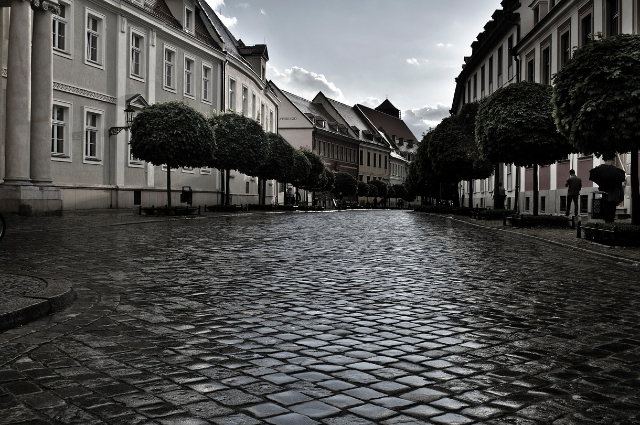
When People Leave, Places Stay
Human love is not reliable at some point in time; it is changeable as seasons, as delicate as a memory. People, with all their good and their potential, occasionally vanish without a warning and carry the comfort they used to bring with them. But even in such absences, there is still, after all, something that is never lost, the silent devotion of places. Cities, forests, and oceans do not reject. They may evolve, yet they do not deny. The spot where you used to weep will still be echoed with your laugh; the cafe that saw you unravel will still be there tomorrow, and will not have been changed by your silence. Places are eternal in a world where individuals tend to forget and move on. Probably, that is the queer consolation of geography--it hearkens where love may not, and it lingers where hearts may not.
The Quiet Empathy of Places
Places do not require explanations as people do. A park never wants to know why you are sitting alone on a Thursday evening, nor does a river ever want to know the cause of the tears that pour into it. They are witnesses, even, unspoken, even knowing, in a kind of old-fashionedness. Human beings become tired of emotion, and places are ready to take it without any judgment. The walls of your childhood house, the bench under a winter tree, the sound of rain in a strange city, all these are the elements that contain the type of empathy that does not need any words. There is the language of acceptance in nature as well as in architecture. They provide what few people have the opportunity to do, and that is space to exist without performing. Places are in that way the primordial companions of the world, enormous, silent curers who show you that you can simply be.
The Loneliness That People Create
Human contact, as beautiful as it is, tends to wear out. Expectation complicates love, misunderstanding complicates friendship, belonging complicates belonging, and fear of rejection complicates belonging. Most of those harmed by attachment do not turn away due to dislike of individuals, but simply because they are fed up with being invisible. Loneliness is a comfort (although a painful one); it is a more silent way of escaping the mess of unfulfilled expectations. Psychology explains it as withdrawal of emotions, but it may be preservation as well. In a world that demands much of the heart, being alone in a home-like setting is like security. The coffee shop that had been staring at you when you were nursing heartbreak will feel warmer than a new conversation that would shatter you once more. The irony lies in the fact that most people long to be connected and, at the same time, seek solace in solitude, and locations become the brokers of that paradox.
Why We Feel Understood by Places
It is a silent science why some places are living for us. Psychologists refer to it as place attachment - the emotional attachment of a person to a certain environment. Home is a source of stability; it is a place to rely on when relationships fail. One can go, and a street, a skyline, or a sunset can be a landmark in the hurricane of memory. The mind correlates places with feeling - comfort, loss, love, hope - and turns geography into intimacy. That is why when you are standing on an old bridge or listening to a train whistle in a city, it can seem like you are shaking hands with an old friend. We transfer our feelings to spaces, and spaces in their turn reflect them with delicacy. They do not judge, but become mirrors of us, possessing us, but not repairing us. Maybe that is why individuals who believe that people do not understand them tend to feel understood by places instead.
The Healing Geography
Travel, also, is a sort of heart therapy. Movement is medicine to some of them, the process of abandoning what hurts them and going somewhere new that is not yet aware of their pain. A coast does not ask what happened to you; a country village has never listened to your tale. Places permit reinvention with no anticipation. Both of the destinations promise the illusion - or perhaps the reality - of the healing. The breeze in your face in a new city is like an invitation to begin anew. To the broken, travel is not escape; it is re-creation. Places do not love like people love, that is, through affection, but by acceptance. They demand nothing, but they bring peace. They do not assure permanence, but in some way, they always accept you back. Maybe it is the silent beauty of the world: it continues to give you beautiful things, even when you have lost the way to demand them.
The Love That Doesn’t Leave
Perhaps the best benevolence of places is that they never cease to reserve space for you. Human beings can forget, get over, or even shut their hearts, but the earth in its patient silence never does. The very streets will be waiting on your return, the very sea will speak your name, and the very mountains will hold your secrets. This could be poetic, but it is very human: as soon as the love of other people disappears, the love of the world silently starts. The air, the wind, the smell of rain, all the little constants that have known you to live, are their own way of loving you. The world will love you steadily, unspoken, as people will not always love you in the manner you deserve. It will love you without cause, without termination - and that is enough at times.
